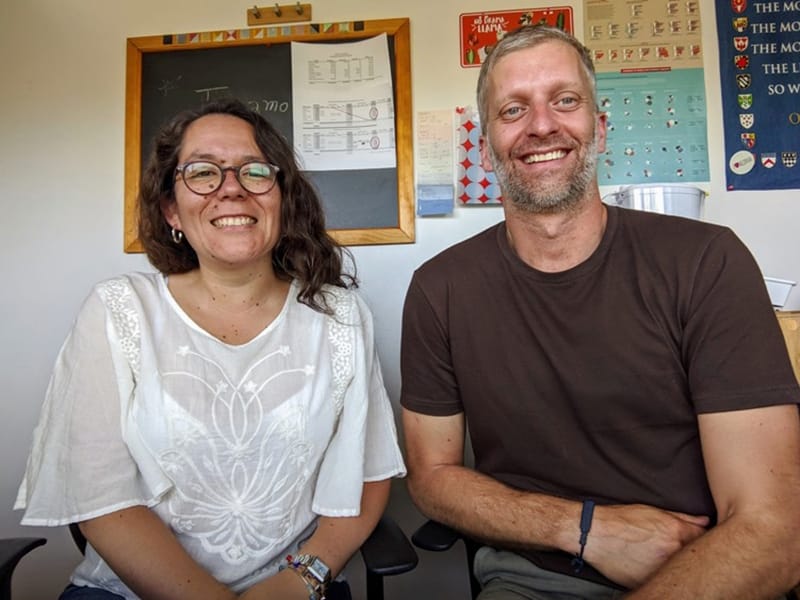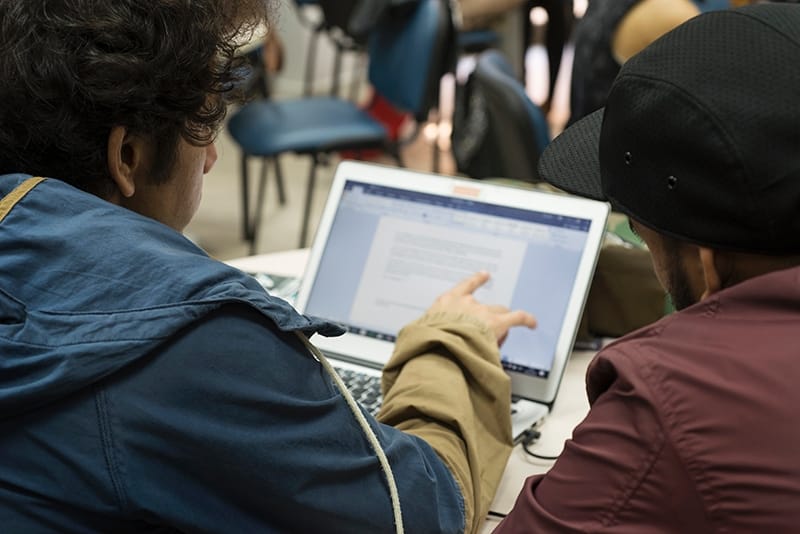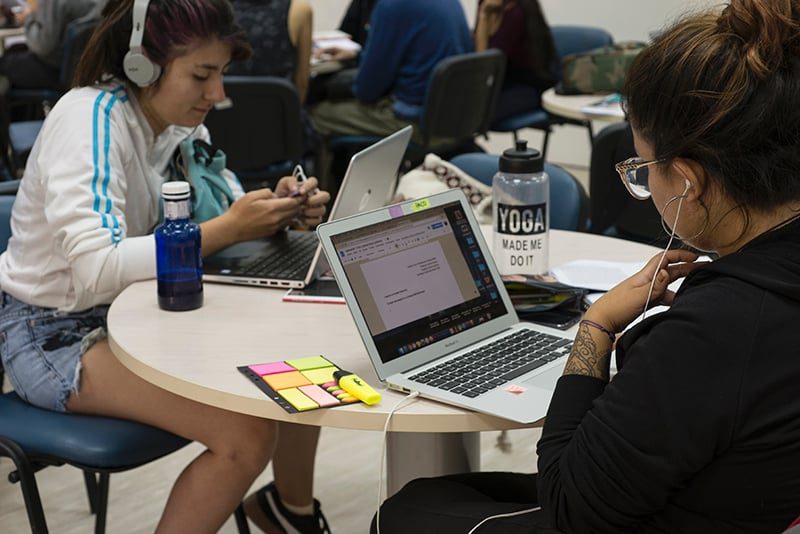Ana María Castillo and Lionel Brossi, directors of the Artificial Intelligence and Society Nucleus and academics from the Institute of Communication and Image of the University of Chile, were part of an international meeting organized by the Berkman Klein Center of Harvard University. The instance, which brought together students and researchers from 21 countries, allowed to generate a document with the conclusions on access to digital education in times of COVID-19.
At the end of 2020, the Berkman Klein Center of Harvard University carried out an international digital instance that brought together 40 students and researchers from 21 different countries. The objective? dialogue and analyze the intersection between science, politics, digital economy and civil society, exploring the disruption, challenges and opportunities that the COVID-19 pandemic has represented for the educational field, within the framework of a project led by the Global Network of Centers of Internet and Society (NoC) on the Ethics of Digitization.
The Institute of Communication and Image of the University of Chile was present in this instance with Prof. Ana María Castillo and Prof. Lionel Brossi, directors of the Artificial Intelligence and Society Nucleus, who were part of a panel of experts of the meeting, whose The results were collected in the document “Digital Ethics in Times of Crisis: COVID-19 and Access to Education and Learning Spaces“.
The work, available in English for free download, presents a summary of the results of all the studies that were presented in that instance, developed with an iterative process of co-creation between the students and researchers participating in the meeting, the program staff and subject matter experts.
“The health crisis has made visible how weak the educational system is as we had conceived it, and especially regarding the structural conditions that do not allow correct accessibility, adequate internet connectivity or basic literacy to face a situation such as the one we are experiencing, especially at the Latin American level. Taking into account these and other aspects, this document provides tools to address the ethical challenges that have arisen in this context, with the aim of moving forward in a proactive way in strengthening digital educational development with an ethical and participatory perspective”, comments the Professor Lionel Brossi.
For her part, professor Ana María Castillo considers that this experience also shows the importance of participatory methodologies to advance towards educational development in digital contexts. “All technology, all innovation, all new methodology in the field of learning must be situated and in accordance with what people need. This document not only allows us to see what is being done outside, but it also gives us insights into how we can effectively position ourselves and evaluate, characterize and analyze the needs of the educational environment in which we operate, in order to then be able to develop methodologies that serve in this specific setting,” he says.



Participatory digital education
For both teachers, the contribution that the academic world can make to the development of this educational field is key, especially in the exploration of opportunities that the current context of crisis could present. This, because working with communities opens a world of learning possibilities not only for students, but also for the development of new active education methodologies.
“One of the main elements to achieve this is to work in a multisectoral manner, facing the academic tendency to lock ourselves in a bubble, without having contact with the territories, civil society or educational communities. This is a work that we have been developing from the University of Chile, specifically from our work in the Artificial Intelligence Nucleus and Society of the ICEI, in the sense of articulating our investigative work with international organizations such as UNICEF, or the International Communications Union, with whom we have developed educational policies with this objective, as well as regional and local initiatives such as the Hablatam Project ”, explains Professor Brossi.
Professor Castillo also highlights the work that has been carried out with the school communities, a central element in understanding the needs of the various educational spaces. According to the teacher, both school and university spaces must advance on this path together to strengthen the application of active and participatory methodologies.
“All these types of methodologies require in some way an autonomy in the students that unfortunately we have not yet applied in a massive way in the years of schooling. That is to say, today it is very complex to ask a student who has been educated for twelve years under a hierarchical model in relation to the teacher, to suddenly become an autonomous person with respect to his own education. But this can be achieved if we begin to work on these methodologies in the early stages of training and encourage university and school collaboration on this issue”, affirms the academic.
The teacher adds that for the advancement of this last point, the impulse that the University of Chile has given to the various projects of Liaison with the Environment, such as the Valentin Letelier Fund, which puts the academic community, official and student in contact with the communities.
The participation of ICEI professors Lionel Brossi and Ana María Castillo in Digital Ethics in Times of Crisis: COVID-19 and Access to Education and Learning Spaces was thanks to the academic relationship that they have been developing for years with the Berkman Klein Center for Internet and Society of Harvard University, USA, specifically with the Youth and Media working group, led by Sandra Cortesi, with whom they have worked on various projects that address the intersection of youth, technologies, Human Rights, diversities and social inclusion.
(This article first appeared on https://www.uchile.cl/noticias/174511/academicos-participan-en-comite-para-fortalecer-la-educacion-virtual)
